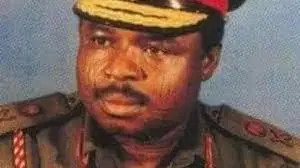Former military president, General Ibrahim Babangida (IBB), has defended the execution of his childhood friend and classmate, Mamman Jiya Vatsa, alongside nine other senior military officers, for their alleged involvement in a coup attempt against his government in 1986.
In his newly released autobiography, A Journey in Service, launched in Abuja, Babangida detailed the circumstances that led to the decision, describing it as a painful but necessary action to preserve national stability and uphold military tradition.
“Vatsa’s death was a personal loss,” Babangida admitted. “As a human being, I was deeply affected, but the stability of the nation and the cohesion of the armed forces took precedence over personal ties. In the military, the consequences of a failed coup are clear and unmistakable.”
The former president initially dismissed the rumors of Vatsa’s involvement, believing their lifelong bond made such betrayal unthinkable. However, as intelligence reports and investigations uncovered concrete evidence—including financial transactions and plans for strategic attacks—he was forced to confront the reality.
According to Babangida, the coup plot included plans to bomb key infrastructures like Lagos’ Eko Bridge, sabotage air force assets, and possibly hijack the presidential jet. The depth of the plot and the level of involvement of senior officers left no room for leniency, he asserted.
Reflecting on his friendship with Vatsa, IBB revealed that tensions had existed for years, often fueled by jealousy over his career advancements. Despite their history, Babangida insisted that duty to the nation came first.
The book also touches on the 1990 Gideon Orkar coup, which Babangida described as an unexpected betrayal from individuals he had personally supported in their military careers.
With this revelation, Babangida offers a rare insight into one of Nigeria’s most controversial military decisions, reaffirming his belief that national security must always outweigh personal relationships.
























